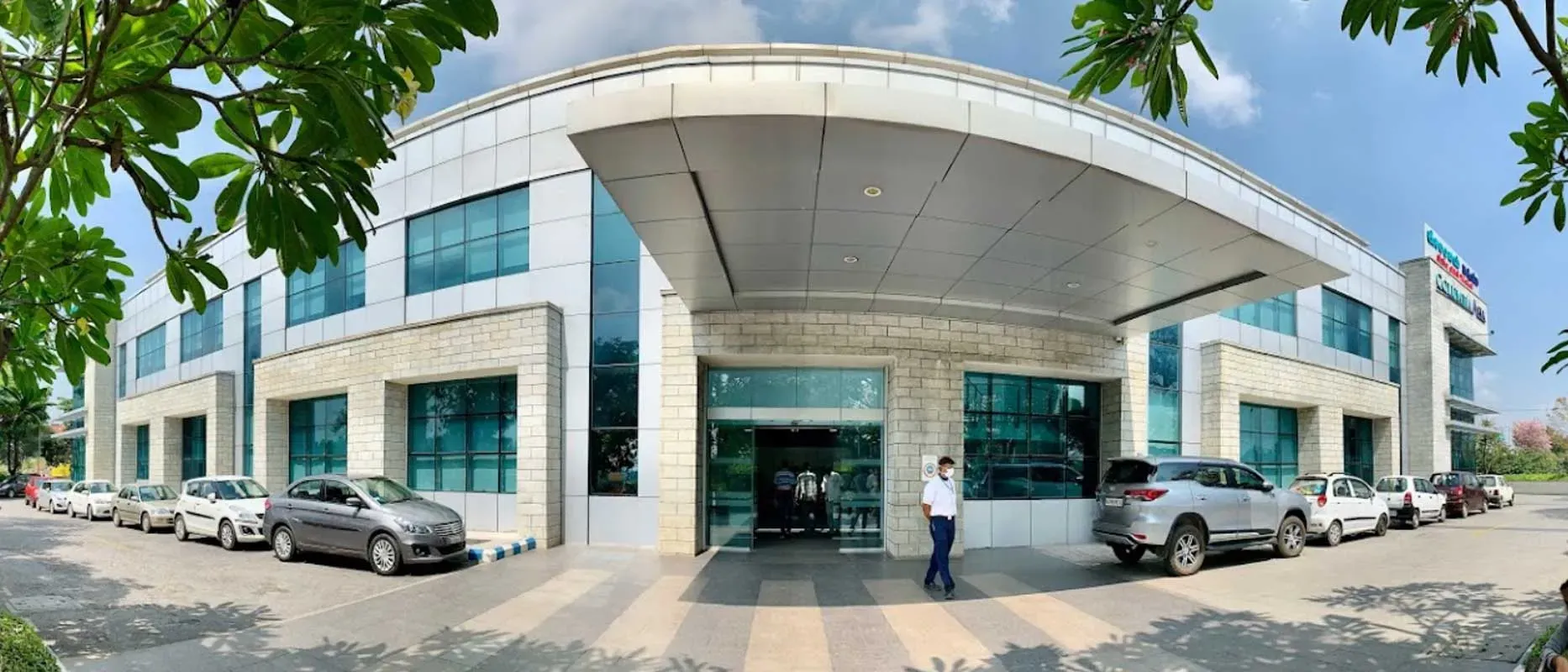Overview of Pancreatic Transplant Treatment
Pancreatic transplant is a surgical procedure in which the diseased or damaged pancreas is replaced with healthy pancreas from a deceased donor. Pancreas is the organ that is present in the left side of the body just behind the lower part of the stomach. The function of the pancreas is to secrete some hormones like insulin that controls the blood sugar level and it also helps in digestion. When the normal function is no longer performed by the pancreas due to some disease, it needs to be transplanted. Pancreatic transplant is usually performed when the other treatment options and medications fail to cure the disease or when the pancreatic damage is so extensive that it can’t be cured. Pancreatic transplant treatment is performed in the diabetic patients in which the deficiency of insulin can lead to severe diabetes. Pancreatic transplant with kidney transplant is often done in the patients when the kidney functions become severely affected by diabetes. The body can reject the new pancreas due to genetic differences so it is advisable to receive pancreas from close relatives to prevent this rejection. After transplant, a gradual increase in physical activity and exercise can strengthen the body which helps in speeding the recovery process. This can help in improving physical health alongside mental health of the patient.
Types of Pancreatic Transplant Treatment
There are different types of pancreatic transplant. Some of these are:
- Pancreas-only transplant
- Simultaneous Pancreas-Kidney transplant
- Pancreas-after-Kidney transplant
- Pancreas Islet Cell Transplantation
Pancreas-only Transplant
The pancreas is transplanted into individuals with type 1 diabetes and kidneys with normal functions. It helps in maintaining the blood sugar levels. After the Pancreas-only transplant, there will be no need for insulin injections.
Simultaneous Pancreas-Kidney Transplant
In this type of pancreatic transplant, the pancreas and kidneys are donated from a deceased donor to the patient who is suffering from severe diabetes and end stage kidney disease. Both the transplanted pancreas and kidneys then provide normal functioning in the body to lower the symptoms of the patient and to cure the disease.
Pancreas-after-Kidney Transplant
When the kidney transplant procedure leads to pancreatic failure due to some complications of diabetes, then there is a need to transplant pancreas also right after the kidney transplant. It is usually performed when the kidney transplant leads to severe complications of diabetes and cannot be treated with medications or injections.
Pancreas Islet Cell Transplantation
Pancreas islet cells are the cells that produce insulin. In diabetes when these cells are damaged but all the other parts of the pancreas are intact, then a pancreas islet cell transplantation procedure is performed in order to treat the diabetes. This is usually performed when the diabetes is in its initial stages of disease.
Procedure of Pancreatic Transplant
Evaluation: The recipient undergoes a thorough evaluation to assess their overall health and determine if they are suitable for a pancreatic transplant. This involves medical tests, imaging studies, and consultations with the transplant team.
Organ Matching: A suitable pancreas with close genetic possibility is identified for transplantation, either from a deceased donor or a living donor that is based on availability and compatibility.
Surgery Preparation: Preparations are made for the surgery that includes scheduling the day for pancreatic transplant surgery, assembling the surgical team and scheduling the operating room.
Anesthesia: The recipient is given anesthesia to ensure they are unconscious and free of pain throughout the procedure.
Incision: The incision is made according to the type of procedure chosen. It may be large in case of traditional open surgery or may be smaller incisions in case of minimally invasive surgery.
Donor Pancreas Removal: The surgeon removes the pancreas from the deceased person with important blood vessels and some part of the small intestine.
Transplantation: The donor pancreas is carefully connected to the recipient's blood vessels and digestive system. This involves attaching the blood vessels of the donor pancreas to the blood vessels to the patient. In this surgical procedure, the donor pancreas is connected to the intestine or bladder of the patient for drainage.
Closure: After the transplantation, the incisions are closed and medications are applied for the prevention of infection.
Recovery: For the recovery, the medicines are applied for the prevention of blood clots. Some medicines are used to lower the chances of rejection of transplant.
Follow-up Care: after the transplant, there is a need to follow a proper diet and adapt some lifestyle changes. Exercise and physical activity should increase gradually to improve the quality of life.
Cost of Pancreatic Transplant in India
The cost of pancreatic transplant in India ranges from 21,312 USD to 28,416 USD. The cost may vary according to the patient’s condition, type of pancreatic transplant and hospitals’ facilities. The cost can also vary if the surgical procedure presents with severe complications.
| Treatment Costs in India |
Min in USD |
Max in USD |
| Pancreatic transplant |
20000 USD |
30000 USD |
Symptoms & Risk Factors of Pancreatic Transplant Treatment
Here are the indications or conditions that may require a pancreatic transplant:
- Type 1 diabetes mellitus in which there is difficulty to control blood sugar levels with medications.
- Severe hypoglycemia and the inability to recognize low blood sugar.
- Labile diabetes with frequent and unpredictable swings in blood sugar levels.
- End-stage renal disease or kidney failure that may require kidney transplantation, along with damage to pancreas.
- Recurrent or chronic pancreatitis with severe pain and complications.
- Pancreatic cancer with limited spread and eligibility for a combined pancreas-kidney transplant.
- Non-functioning or severely impaired pancreas due to trauma
- Congenital abnormalities
- Insulin-dependent diabetes mellitus with significant complications such as diabetic retinopathy, neuropathy, or nephropathy.
- Severe and recurrent diabetic ketoacidosis episodes.
- Recurrent severe hypoglycemic episodes that are life-threatening or significantly impact quality of life.
- Poor quality of life due to the burden of managing type 1 diabetes.
- Islet cell failure or dysfunction despite intensive insulin therapy.
- Exocrine pancreatic insufficiency leading to malabsorption and significant weight loss.
Risk Factors of Pancreatic Transplant
Surgical Risks
The pancreatic transplant procedure is highly complex and may cause leakage of blood vessels, infections or blood clot formation which further require the medical and surgical management.
Organ Rejection
Sometimes the body's natural defense mechanism recognizes the tissue of transplant as an antigen and fights against the new donor transplanted lung tissues. This can be prevented by using immunosuppressive medications but still there are chances of rejection.
Infections
Due to decreased immunity, the chances of viral, fungal and bacterial infections increases to two folds which can damage the transplanted pancreas and also other organs.
Post-operative Complications
After a surgery, some pancreatic transplant recipients may experience complications such as chronic rejection, recurrence of the original pancreatic disease, or health issues unrelated to pancreatic disease.
Cardiovascular Complications
There is an increased risk of heart disease, high blood pressure, and narrowing of blood vessels.
Pre-existing Conditions
Recipients with pre-existing conditions, such as diabetes or kidney problems, may experience complications or the potential recurrence of these conditions after the transplant.
Top Hospitals for Pancreatic Transplant in India
Shaping the future of the healthcare institution and establishing the path to accomplishment.
Top Doctors for Pancreatic Transplant in India
Empower your Health with the Expertise of Leading Medical Professionals.
Dr. Suresh Raghavaiah
Department of Liver Transplant
Consultant
Book Appointment
Dr. Mathew Jacob
Department of Hepatology
Hepato Pancreato Biliary surgeon
Book Appointment
Dr. Rajiv Lochan J
Department of General Surgery
General Surgeon
Book Appointment
Treatment Costs for Pancreatic Transplant
Be the change and be an opportunist in transforming healthcare.
How it's Works
Guiding your Journey from Discovery to Treatment Planning and Beyond.
Discovery
Get a consultation to discover about your treatment
Pre-Treatment
Admission to the best hospital and all pre-treatment facilities
Post Treatment
Get post-treatment follow-up care with medicine fulfillment
Treatment Planning
Hassle-free treatment planning with package & cost estimations
in-treatment
world-class quality procedures and equipment for treatment
























